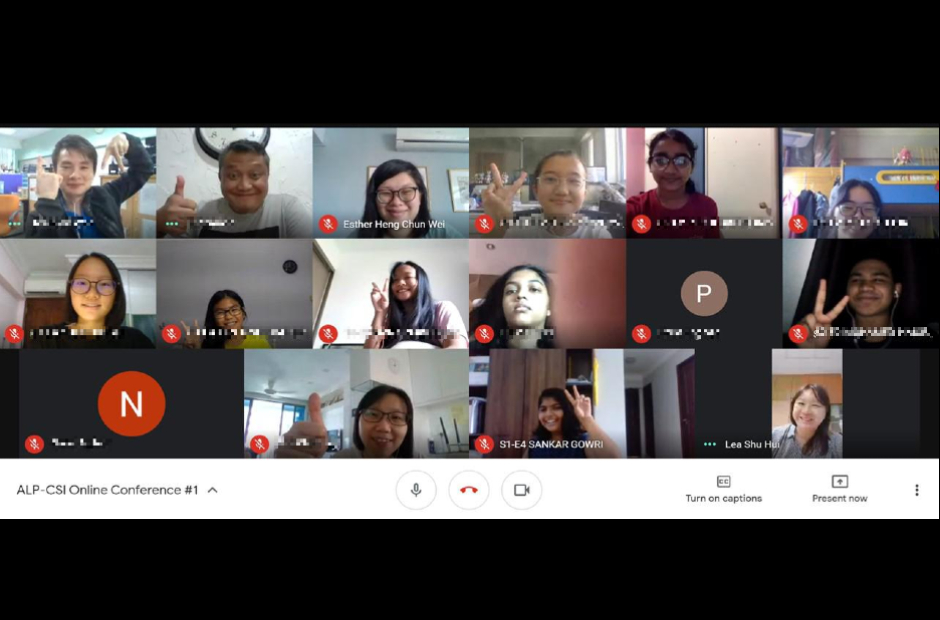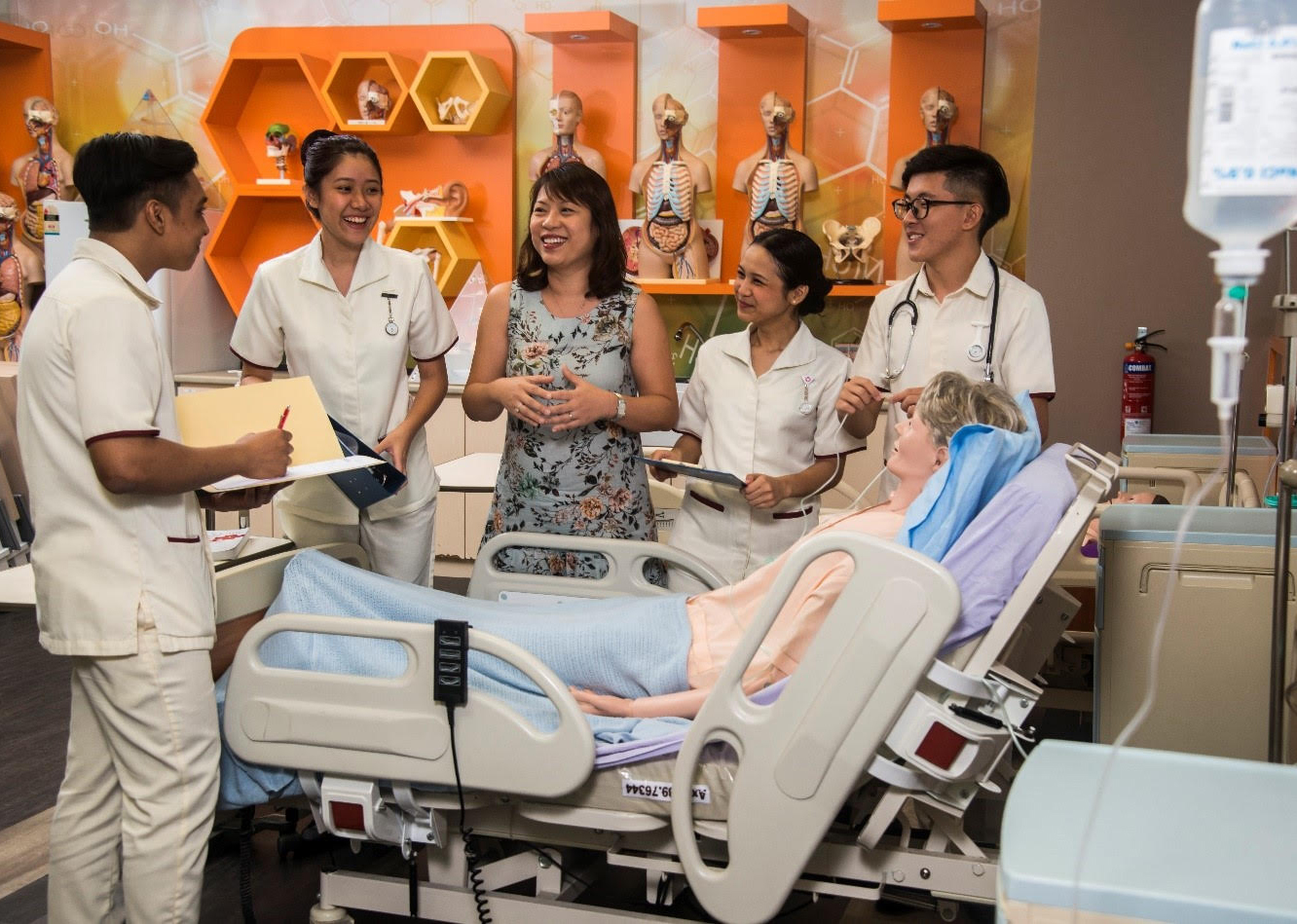Cheriise Sin, a Secondary Two student from Jurong West Secondary School, quipped, “So many interesting stuffs to learn and experiment with!”
Seen in the the school’s creative labs, our young techies and budding film makers are busy creating short films, mobile apps and websites.
Students like Cheriise are part of the school’s Applied Learning Programme (ALP) known as ALP @ JWSS: Harnessing Technology, the Visual Arts and Communication in Authentic Context, where they find innovative solutions to solve real social and environmental issues using knowledge, skills and values from three key subject disciplines which are: InfoComm Technology (ICT), English Language and Visual Arts.
So, what do our students do?
As they create a host of digital artefacts, the students explored a variety of fields such as media literacy and coding.
Conducted at the lower secondary levels, the Media Literacy modules highlight the importance of information searching and discernment where students were taught to spot fake news by verifying the authority of the sources and cross-referencing other websites or sources. The module also focussed on detecting biasness in moving pictures using the 5-Finger Test recommended by the National Library Board. Using the 5-Finger Test, they analyse a TV commercial of their choice. In addition, they learn to deconstruct music videos to gain greater insights into their subliminal messages.
On the other hand, The Coding (Programming) module acquaints the students with the Python programming language through an Hour of Code. Thereafter, they try their hands at creating and programming a Scratch game where they learn about computer logic and discover more about algorithm and debugging through experiential learning.
Students also pick up website coding. With the skills, they researched on environmental advocacy and created a website that informed and persuaded readers to be more eco-conscious.
“This programme has no conventional means of assessments or grading, it is purely an unstructured form of learning where students can enjoy learning at their own pace. Students get to structure their own project planning and management. This student-centricity that focuses entirely on skill-building in the learner is primarily why it is a one-of-a-kind programme,” said Miss Julya Chan, Subject Head for English Language.
Reinforcing values and social skills
Under a customised training, the Secondary Two students work on their Final Project over a period of fifteen weeks where they create a digital artefact that advocates a social cause of their choice.
Cheriise and four of her friends worked on a documentary video that sheds light on the existing animal abuse issues and aims to evoke audience’s empathy for animals.
“We were able to work with people from other classes, something that would not be possible if not for ALP @ JWSS. Our Final Project experience has allowed us to learn many new things involved in videography,” said Cheriise.
They learned how to film from various angles and how each angle or other cinematography elements can evoke emotions or feel of the entire video. They also had a chance to dabble with Computer Generated Imagery (CGI). For example, they used a green screen while filming to make use of chroma keying – a popular skill used in many Hollywood movies.
“It has widened our horizons and we are more tech-savvy,” said the Secondary 2 student.
Another Secondary Two student, Eva Natasha shared, “In addition to learning useful skills, I really liked the learning journey to a mobile exhibition in a bus where I found interesting gadgets, especially the tiny robot (Sphero) which could be programmed.”
Eva also expressed her love for programming a website about the arts. Her dream is to feature undiscovered underrated artists and brilliant art pieces not known to the world.
Parents were delighted to find out that the students have gained confidence in expressing their views as they collaborate with their peers in the ALP projects over the two-year period.
Cheriise’s mother was happy that the programme turned out to be a good learning experience for her daughter. “I wish schools during my time had these lessons as well. Cheriise is very lucky to be part of it,” she said with a smile.
Strengthening social and emotional competencies
The collaborative nature of the programme helped to strengthen their social and emotional competencies. Group work taught the students to understand themselves better and build interdependent relationship with others as well.
“I have picked up all sorts of digital media and presentation skills including coding and Photoshop. Not just that, I became more responsible as all of us have our part to play during group work,” said Cheriise.
One of the teachers in-charge of the programme, Mr Rahmat Tirmizi, also mentioned that the students became more assertive as they articulate and persuade others of their ideas.
“As the students constantly explore the latest tech gadgets, they also look forward to the EAP (Enhanced Art Programme), the ‘O’ Level Computing, the higher educational opportunities and career prospects in these industries. These are impacts that are not so commonly seen in a typical classroom,” said Miss Chan.





0ad579a7a8a66eb2afccc900c73e6f2e.jpg)
